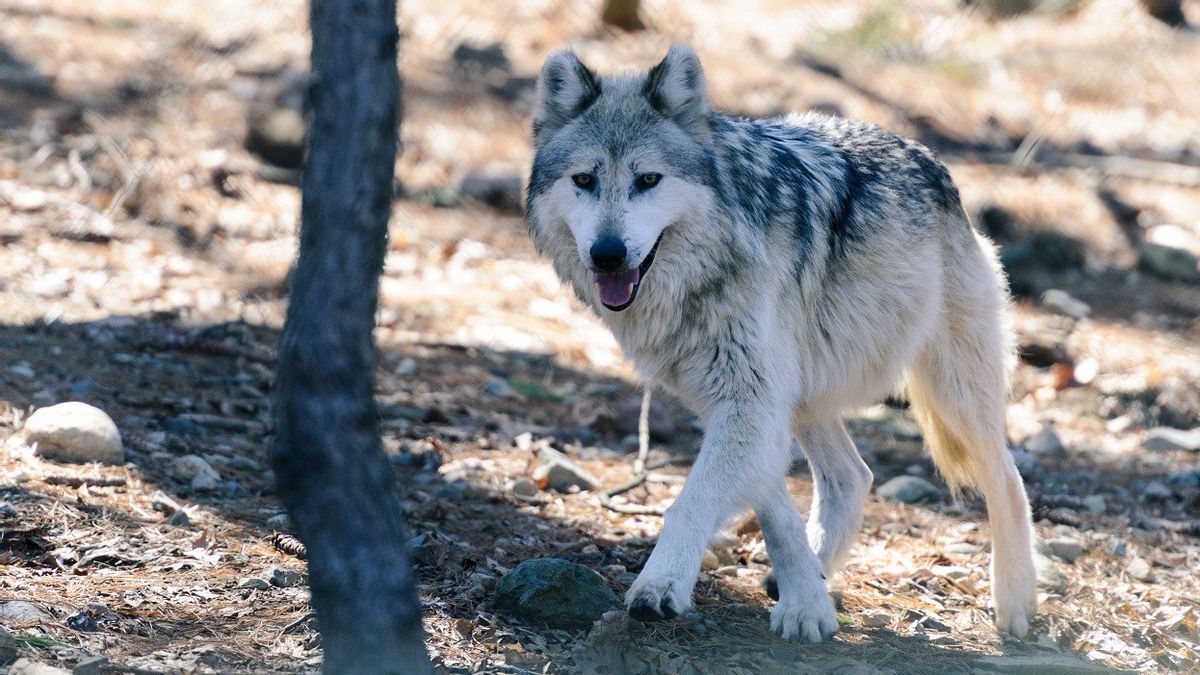JAKARTA - Dutch authorities will be allowed to use paintball weapons to shoot wolves in national parks, to scare them after at least one of the animals began approaching visitors, according to a court ruling in January.
Status as a protected animal in the Netherlands, wolves cannot be hunted legally in the country.
However, authorities in eastern Gelderland suggested that wolves in Hoge Veluwe National Park be kept away from humans who visited the popular venue using a paintingball weapon.
In its ruling, the Central Dutch District Court said a female wolf in the park was seen approaching pedestrians and cyclists, showing what he called "unnatural behavior," quoted from Euronews March 25.
It is not yet clear when authorities will start using a paintingball gun to target wolves in the park.
Hoge Veluwe National Park is a popular destination for pedestrians and cyclists. It is also home to the world's famous art gallery, the Kr\"oller-M\"uller Museum. Various animals, including deer, Mouflon sheep and wild boars, live in this park and have been repeatedly attacked by wolves in recent years.
The park recently posted footage on Instagram showing confrontation between two wolf groups, one inside a fenced garden and another outside.
An expert who provided evidence on behalf of the province said the female wolf behavior "suggested a serious threat to public safety," the court said in a statement.
"The fact that wolves do not appear to be afraid of humans does not mean that the animals are no longer aggressive and bite," he added.
The wolf itself is known to be the subject of heated debate in several countries in Europe, where the animal population is on the rise again.
Two centuries after wolves were hunted to extinction in the Netherlands, the animals returned to the country after a pair of wolves crossed the border from Germany and gave birth to three wolves on Dutch soil.
Experts and environmental groups estimate up to 19,000 wolves may exist in 27 EU member states, with a population of more than 1,000 expected in Bulgaria, Greece, Italy, Poland, Romania, and Spain.
SEE ALSO:
Given the increasing presence of wolves in European countries, the European Union recommends a review of the animal protection status.
In December, the European Commission proposed lighter protection for the growing wolf population, suggesting a reduced protection status from being "strict" to "only" protected.
In the same month, Estonia began the annual culling of the wolf population, setting a quota of 144 culling, citing the number of animals exceeding the country's conservation plan permits.
The English, Chinese, Japanese, Arabic, and French versions are automatically generated by the AI. So there may still be inaccuracies in translating, please always see Indonesian as our main language. (system supported by DigitalSiber.id)


















